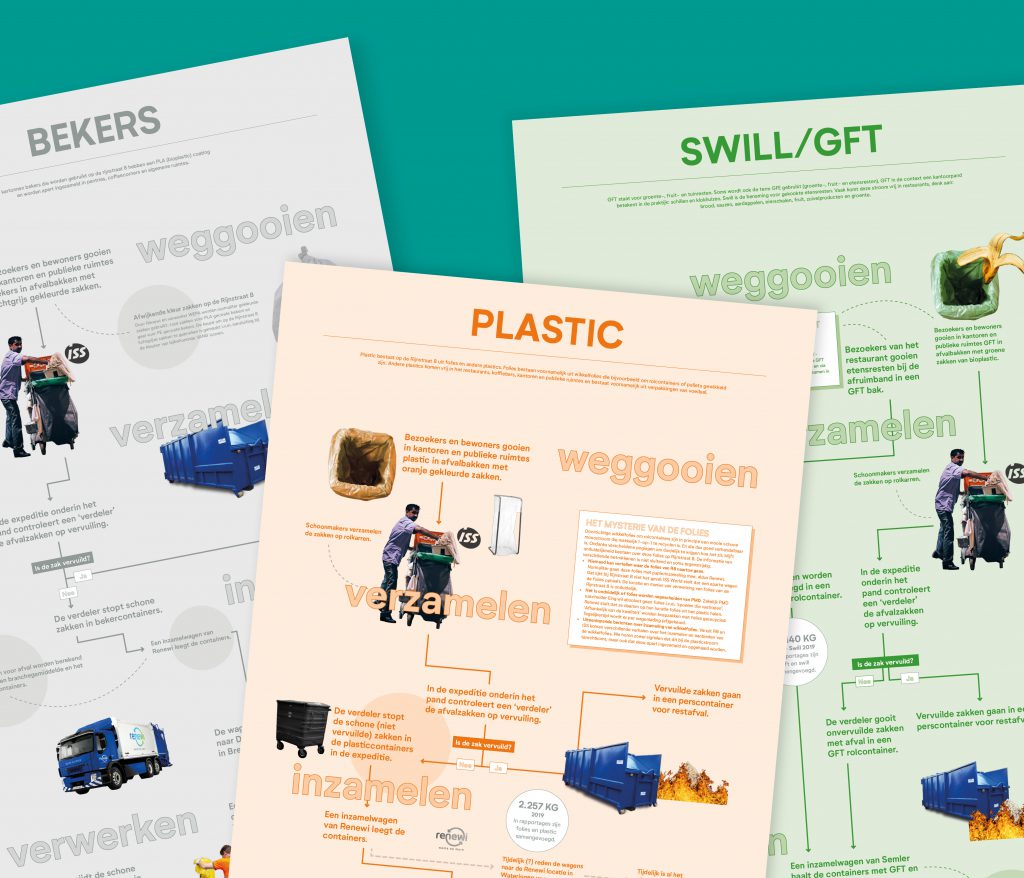A deep dive into waste streams
Client: Ministry of Infrastructure and Water Management
Year: 2019
Transition to properly recyclable waste streams.
Challenge: How do we get the waste forms transparent and get recycling rates up?
Results: Greater understanding of waste streams. Three clear talking points. A humorous animation that gets people thinking and moving.

"It seems like such an obvious idea. Just follow one of those coffee cups or apple bells. But looking beyond your own bin provides a wealth of information and areas for improvement."
The illusion of a functional recycling system shatters after a broadcast of KRO the Monitor. What turns out? 85,000,000 coffee cups are not recycled into toilet paper but go straight into the waste incinerator. Reason enough for the Ministry of Infrastructure and Water Management to ask DIG to take a deep dive into three murky waste streams: plastic, coffee cups and organic waste. In order to clarify what happens to waste along the way and, above all, how we can ensure that recycling rates improve. DIG tracks waste as thoroughly as possible, from source to recycled product. And finds eye-openers, quick wins and possible improvements to improve the design of waste streams.

The process
We followed three waste streams from the source to the final destination: coffee cups, organic waste, and plastic. We spoke to all involved and literally stood among the rubbish bags. We recorded the routes in talking pictures. These show exactly where the thresholds are, where difficult turns have to be taken, and when, for instance, coffee cups can be rejected and still end up in the incinerator.
The outcome
Activating by inspiring. We created a humorous animation with serious undertones about Gerda, the coffee cup. Her dream is to switch careers and play the role of a lifetime as … a toilet roll. It was impressive how open and collaborative all parties were. Only Germany had closed its borders because of COVID-19, preventing us from looking inside the plastic recycling plant.
In a live broadcasting (in Dutch), all involved shared their findings with the world.

